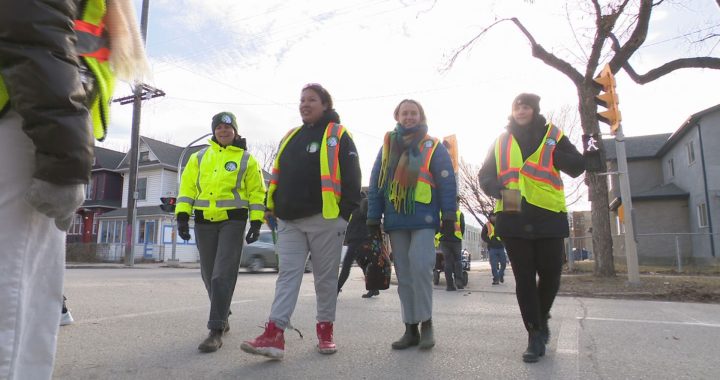Francine Shimizu sits in her living room in St. Catharines, Ont., next to a collage of her daughter, Heather Winterstein.
“This is actually my favourite picture because it’s me and Heather and underneath this thing here, ‘It says my mom is pretty’,” Shimizu tells APTN News.
“It’s nice that she thought of me that way.”
The grieving mother says the collage helps her memories to flow.
“She had a really good sense of humour, she always put things into perspective for me in a very funny kind of way,” says Shimizu, who is a nurse.
It was on Dec. 9, 2021, that Winterstein, 24, went to St. Catharines General Hospital because she didn’t feel well. Her mother believes her daughter’s complaint wasn’t taken seriously because she was Indigenous.
Winterstein was prescribed Tylenol and took the bus to her father’s house to sleep. But when her father arrived home there was a problem.
“When her dad, who’s a truck driver, got in at two in the morning and she was moaning in pain in her bed,” Shimizu says, “he helped her get comfortable, and finally he decided to call the ambulance and have her return to the hospital.”
Shimizu says she wasn’t aware her daughter went back to the hospital – and her former husband didn’t go with the ambulance.
Shimizu says a report written by the hospital, which can’t be shared on the advice of the family lawyer, explains what happened.
“The hospital in triage put her in the waiting area and she was there from about 12:30 (p.m.) until the time that she passed out and fell out of her wheelchair, and then she passed away at 8:40 in the evening,” she says.
According to Shimizu, the report, which APTN News has not seen, says Winterstein died of a staph infection.
“If it penetrates the skin then it can get into other parts and people can get very sick very fast,” she says. “So diagnosis is important.”
Developing Heather’s Law

Heather’s family says they’re not going to let her death slip by. They’re calling for an investigation into emergency services and a coroner’s inquest.
Her mother is also hoping to create a law in her daughter’s honour.
“Heathers Law ensures that there’s access to health care for Aboriginal people, marginalized individuals, in particular, people who are dealing with addictions,” she says.
“It’s to ensure that they get equal access to health care. Just the same as a non-Aboriginal or non-marginalized individual.”
The family isn’t alone in calling for justice.
Six Nations of the Grand River, located about 100 km east of St. Catharines where Shimizu is from, released a statement condemning “the neglectful treatment of Heather Winterstein.”
The statement also says Six Nations “fully supports the call for an investigation into the Niagara Health System and Niagara EMS (Emergency Medical Services) and a coroner’s inquest.”
Read More:
Investigation underway into how Ojibway woman died while in care of Alberta hospital
St. Catharines General Hospital falls under Niagara Health. Its CEO, Lynn Guerro, sent APTN a written statement.
“We are looking at how our Emergency Department functions based on best practices and the ways we identify and support members of equity-deserving groups such as Indigenous patients,” Guerro says in the statement.
“We continue to be committed to the independent Third Party Review to deepen our understanding of Heather’s care experience and the experiences of Indigenous patients and community. We understand the Coroner’s investigation must take precedence, and the Third Party Review will follow the conclusion of that investigation.”
Shimizu says the family is also considering launching a lawsuit.
“Heather has a brother that really misses her, her dad is devastated and I’m devastated,” she says.
According to Ontario’s coroner, a death investigation can take six to nine months to complete and the report is only made available to the family.









